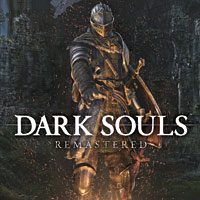Cathartic rage. Gamer Psychology: Why We Rage, and Why It's Ok to

Cathartic rage
Catharsis, or purification, is the phenomenon of relief after difficult, repressed emotions. Practically from the beginning of human civilization, the cultures offered various rituals, works of art or activities allowing for catharsis – in ancient Greece these were ancient tragedies, in Rome, gladiator fights, and in the 20th century, exploitation films (violent, Z-class cinema exploiting instincts commonly considered to be "lower," mainly violence and sex).
Today, such a function can be performed by computer games. They, too, allow us to vent our emotions in a million different ways, all of them unattainable in the real world. Running over pedestrians in GTA may be the first example that comes to mind, but in fact, there is often little element of relief in joyful rubbing of people into the asphalt – it has no personal dimension, and is rather about sowing chaos just for the hell of it, which may feel relaxing and fun, but is unlikely to arouse stronger emotions.
But, say, Seath the Scaleless in Dark Souls is something else – he can be hated and admired from the very first minutes of the intro. In general, the work of From Software was very well designed in terms of evoking extreme emotions – from the beginning, it shows the four main opponents, while outlining (despite the residual narrative) the purpose of the game. Kill a witch here, a necromancer there, a knight and a dragon – that's it, get to work! The unfairly high level of difficulty will make for a memorable experience.

And when the player, after hundreds of deaths and repetitions, finally comes face to face with the Dark Lord... he dies from two blows. "Crap," he exclaims, using words far less decent than I. And then he'll try again. And again. And again. The rage will grow exponentially, slowly tainting the entire field of vision until finally... the opponent will fall. And then comes the catharsis.
Of course, in order for the sense of catharsis to be sufficiently liberating, a sufficiently large load of anger must be built up beforehand, and a few gamepads need to be smashed.
While catharsis is a completely normal, mature – though perhaps not very sublime – way of dealing with emotions, unrestrained destruction of gaming equipment is more like acting-out, i.e. a defensive mechanism based on losing control, and thus rapidly discharging of tension without thinking about the consequences. Of course, acting-out is a very strong, psychopathological notion, and a combo on the table doesn't necessarily immediately involve a mental disorder, but the destruction of the playing equipment should already raise some concern.
THERE ARE BETTER WAYS
How to deal with emotions in a mature way? Psychology supports several highly functional defense mechanisms, among which one of the most frequently proposed is the so-called sublimation. It involves expressing an individual or environment's unacceptable impulses, such as mindless anger, in a constructive manner. Instead of destroying objects around you, you can play ultra-violent trash metal, and instead of angrily slicing people up and becoming a criminal, you can slice people up as part of a socially acceptable way of being a surgeon.
My absolutely favorite defense mechanism, however, is... humor. Silly jokes not only relieve tension and allow you to express your emotions loosely, but also create a proper distance between a person and the experience. Anger, sadness, aggression, or even such impossible feeling like the fear of death become almost trivial with some good humor. Just like that. And yet, all of these things, however momentous they may seem, are actually perfectly normal aspects of life, no more significant than eating or excreting.
Yes, poop jokes qualify as a mature defense mechanism.
The natural need to relieve tension is therefore one of the reasons we play games. In the face of this fact, the accusation that games spur aggression seems ridiculous. Video games do not induce aggression – they merely utilize the anger that's built up inside the player. Maybe that's why video games are a commonly male pastime, but I'm not entirely convinced – the mobile market proves that women are just as keen on spinning time by playing games, and the very notion that males are more aggressive than females, isn't entirely true, since cultural conditioning also plays a major part in taming female, and exacerbating male aggression.
There's no doubt, however, that we play games for emotion. To generate excitement, unload the emotions we already hold, or do both of these. If that doesn't happen, the games will lose meaning – they will become another boring activity, no more engaging than mowing the lawn.
So why is rage such a controversial phenomenon, rather than a fully accepted par for the course of playing games?



